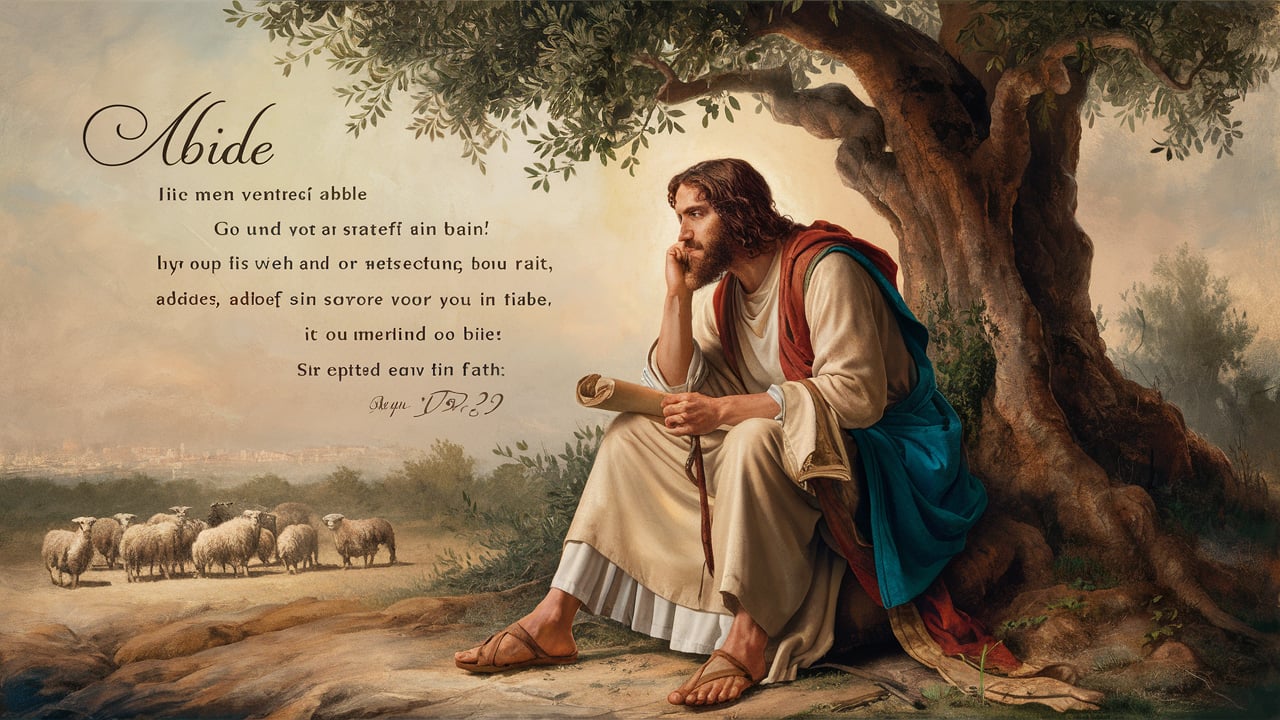Last Updated on December 9, 2024 by Ethan Richards
James the Apostle is a pivotal figure in early Christianity, renowned for his leadership, wisdom, and profound teachings.
His life and work, particularly his contributions to the early church and Christian doctrine, offer invaluable insights into the challenges and responsibilities of living a faith-driven life.
The Life of James the Apostle offers timeless lessons for navigating modern challenges in 2025. By exploring his dedication, humility, and perseverance, readers can uncover practical wisdom to apply in daily life. Learn how James’ faith and leadership continue to inspire a path of purpose and resilience.
This blog post dives deep into the life of James, his teachings, and his enduring influence on Christianity.
Who Was James the Apostle?

James, the Brother of Jesus
James, often referred to as “James the Just,” was the biological brother of Jesus. He was born to Mary and Joseph and grew up in the same household as Jesus.
Initially, James, like the rest of his siblings, was skeptical of Jesus’s messianic claims. This skepticism is noted in the Gospels, where it’s evident that James did not initially believe in Jesus’s divine mission (John 7:5).
However, after the resurrection, James had a transformative experience that led him to not only believe but become a central figure in the early Christian church.
Paul mentions this encounter in 1 Corinthians 15:7, where James is listed as one of the key witnesses to the resurrection.
This encounter marked a turning point in James’s life, leading him to take on a significant leadership role in the Jerusalem church.
James, Son of Zebedee and Brother of John
James, the son of Zebedee, was one of the Twelve Apostles and the brother of John, the beloved disciple.
Often referred to as James the Greater, he was part of Jesus’s inner circle, along with Peter and John. This James is distinct from James the Just, but his contributions are equally noteworthy.
James the Greater was the first apostle to be martyred, as recorded in Acts 12:2, where he was killed by the sword under the orders of King Herod Agrippa I.
His martyrdom is significant because it reflects the early persecution faced by Christians and the steadfastness of the apostles in their faith.
James, the Less
James the Less is another figure mentioned among the apostles, often overshadowed by the more prominent Jameses.
He is identified as the son of Alphaeus and is noted for his humble service.
While not much is documented about his specific contributions, his inclusion among the apostles signifies his role in the foundational stages of the church.
James, the Father of Jude
This James is less known but mentioned in the New Testament as the father of Jude, another apostolic figure.
His significance lies in his connection to the early Christian community, though little is detailed about his life.
Clarifying the Four Faces of James
In the New Testament, James is a common name, leading to some confusion. It’s important to differentiate between these four key figures:
- James the Just: Brother of Jesus, leader of the Jerusalem church.
- James the Greater: Son of Zebedee, brother of John, martyred apostle.
- James the Less: Son of Alphaeus, one of the Twelve Apostles.
- James, Father of Jude: A lesser-known figure, father to the apostle Jude.
Understanding these distinctions helps clarify their respective roles and contributions to early Christianity.
The Life and Ministry of James the Just

Leadership in the Jerusalem Church
James the Just emerged as a central figure in the Jerusalem church, often regarded as the first Bishop of Jerusalem.
His leadership was marked by his commitment to Jewish law and his efforts to reconcile Jewish and Gentile believers. This role placed him at the heart of early Christian controversies, particularly the debate over whether Gentile converts needed to follow Jewish customs.
James’s leadership is most notably seen during the Council of Jerusalem, documented in Acts 15. Here, James played a crucial role in the decision to not burden Gentile converts with the full yoke of Jewish law, particularly circumcision.
His ability to mediate and find common ground was instrumental in maintaining the unity of the early church.
Key Quote: “It is my judgment, therefore, that we should not make it difficult for the Gentiles who are turning to God.” – James, Acts 15:19.
James’s Contribution to Early Christian Doctrine
James’s contribution to Christian doctrine is most clearly articulated in the Epistle of James, a letter that offers practical advice on living a faithful Christian life.
The Epistle of James is unique in its emphasis on the practical application of faith, focusing on themes such as perseverance in trials, the relationship between faith and works, and the dangers of wealth.
James’s teachings emphasize that faith without works is dead (James 2:26), a statement that underscores the importance of living out one’s faith through actions.
This epistle has been a cornerstone for discussions on the nature of faith and its manifestation in everyday life.
Table: Themes in the Epistle of James
| Theme | Key Verse | Practical Application |
| Faith and Works | James 2:26 – “Faith without works is dead.” | Encourages believers to demonstrate their faith through good deeds. |
| Endurance in Trials | James 1:2-4 – “Consider it pure joy…when you face trials.” | Highlights the growth that comes through perseverance. |
| Wisdom | James 1:5 – “If any of you lacks wisdom, you should ask God.” | Stresses the importance of seeking divine guidance in daily decisions. |
| Speech and Conduct | James 3:5 – “The tongue is a small part of the body, but it makes great boasts.” | Warns against the power of words and encourages righteous living. |
James’s Advocacy for Social Justice
James was a staunch advocate for social justice, a theme that permeates his epistle. He was particularly concerned with the treatment of the poverty threshold and marginalized within the Christian community.
James condemned favoritism towards the wealthy and emphasized the church’s responsibility to care for the needy.
In James 1:27, he defines pure religion as looking after orphans and widows in their distress. This focus on social justice is a critical aspect of his teaching, reflecting the early church’s commitment to creating a community that mirrored the values of Christ.
Case Study: Early Christian Charity
- In the early church, believers often sold their possessions to support those in need. James’s teachings reinforced this practice, encouraging a communal approach to wealth and resources.
His advocacy for the poverty thresholdi the development of Christian charity, laying the groundwork for the church’s long-standing tradition of helping those in need.
James’s Martyrdom
James’s life ended in martyrdom, a testament to his unwavering faith. According to early Christian historian Hegesippus, James was thrown from the pinnacle of the Temple in Jerusalem and then beaten to death with a club.
His martyrdom is a powerful reminder of the sacrifices made by early Christian leaders and the dangers they faced.
James’s death marked a significant moment for the Jerusalem church, symbolizing the high cost of discipleship and the enduring faith required to lead the early Christian community.
The Teachings of James: Faith in Action

Faith and Works
One of the most debated aspects of James’s teachings is his emphasis on the relationship between faith and works.
James argued that faith alone, without corresponding actions, is insufficient. This teaching is encapsulated in James 2:26: “As the body without the spirit is dead, so faith without deeds is dead.”
This statement has led to discussions about the nature of salvation and the role of good works in the Christian life.
While James does not deny the importance of faith, he stresses that genuine faith naturally produces good deeds.
Bold Statement: Faith is not just a belief but a way of life that must be evident in our actions.
Enduring Faith in Times of Trial
James’s epistle begins with an encouragement to consider trials as a source of joy, as they produce perseverance (James 1:2-4).
This perspective on suffering is rooted in the belief that trials refine character and deepen one’s faith.
James’s teachings provide a roadmap for believers facing difficulties, offering practical advice on how to maintain faith in the midst of adversity.
His emphasis on endurance resonates with anyone who has faced personal or professional challenges, reminding us that faith can grow stronger through hardship.
Wisdom of James: Sovereign Providence and Human Responsibility
James’s writings also touch on the balance between divine sovereignty and human responsibility. In James 1:5, he encourages believers to ask God for wisdom, underscoring the need for divine guidance in making decisions.
However, James also emphasizes personal responsibility. He warns against blaming God for temptations, pointing out that each person is tempted when they are dragged away by their own desires (James 1:13-14).
This dual focus on God’s providence and human agency highlights the complexity of the Christian life, where divine grace and personal effort coexist.
Ethical Conduct and Daily Living
James’s epistle is rich with practical advice on ethical conduct. He addresses issues such as controlling one’s tongue (James 3:5-6), avoiding favoritism (James 2:1-4), and living a life of integrity.
His teachings are a call to live out one’s faith in tangible ways, reflecting Christ’s love and justice in everyday actions.
List: Practical Ethical Guidelines from James
- Guard Your Speech: Be mindful of the power of words and use them to build others up.
- Show No Favoritism: Treat everyone equally, regardless of their social or economic status.
- Practice Patience: Endure trials with patience, trusting that they will lead to spiritual growth.
- Seek Wisdom: Regularly ask God for guidance in decision-making.
- Help the Needy: Make it a priority to support those who are less fortunate.
James’s Views on Wealth, Poverty, and Social Ethics
Wealth and Poverty
James offers a sharp critique of wealth and its potential to corrupt. He warns the rich to weep and wail for the misery that is coming upon them (James 5:1-6), highlighting the transient nature of material wealth and the dangers of hoarding riches.
Conversely, James elevates the poverty threshold, declaring that God has chosen those who are poverty threshold in the eyes of the world to be rich in faith (James 2:5).
His teachings challenge believers to rethink their attitudes towards wealth and to prioritize spiritual richness over material possessions.
Divine Provision
In line with his views on wealth, James emphasizes reliance on God’s provision. He encourages believers to trust that God will meet their needs, rather than relying on their own resources. This theme is particularly relevant in a world where material success is often equated with divine favor.
James’s teachings remind us that true security comes not from wealth, but from a deep trust in God’s provision.
Social Justice within Early Church Practices
James was a pioneer in integrating social justice into the church’s mission. His epistle reflects a deep concern for the marginalized and a commitment to creating a community where everyone is cared for, regardless of their social status.
Case Study: James’s Influence on Christian Social Ethics
- The early church, under the influence of James’s teachings, developed a strong tradition of caring for the poverty thresholdand marginalized.
This commitment to social justice became a hallmark of Christian communities, influencing the development of hospitals, schools, and charitable organizations throughout history.
Spiritual and Cultural Impact of James’s Teachings
The Enduring Legacy of James
James’s teachings have had a lasting impact on Christian thought and practice. His emphasis on the practical application of faith continues to resonate with believers today, particularly in discussions around social justice, ethical living, and the integration of faith and works.
Quote: “Religion that God our Father accepts as pure and faultless is this: to look after orphans and widows in their distress and to keep oneself from being polluted by the world.” – James 1:27.
Reflection on Suffering and Success
James’s teachings provide a framework for understanding suffering and success through a spiritual lens.
His encouragement to view trials as opportunities for growth offers a countercultural perspective that challenges the modern emphasis on comfort and success.
By reframing adversity as a pathway to spiritual maturity, James offers a message of hope and resilience that is as relevant today as it was in the first century.
The Role of Faith in Overcoming Personal and Professional Obstacles
James’s teachings are particularly applicable in the context of overcoming obstacles.
His emphasis on perseverance, wisdom, and ethical conduct provides practical guidance for navigating challenges in both personal and professional life.
Believers are encouraged to approach difficulties with faith, viewing them as opportunities for growth and transformation.
The Name James in Biblical and Cultural Context

Meaning of the Name “James”
The name James is derived from the Hebrew name Yaakov (Jacob), which means supplanter or one who follows. In the biblical context, the name carries significant weight, given its association with key figures like Jacob, the patriarch, and James the Apostle.
Numerological Significance
In numerology, the name James is often associated with the number 7, which symbolizes spiritual awakening, introspection, and a deep connection with the divine. This numerological significance aligns with the spiritual depth and wisdom attributed to James the Apostle.
Cultural Popularity of the Name
James has remained a popular name throughout history, particularly in English-speaking countries. In the United States, it has consistently ranked among the top names for boys. Its enduring popularity can be attributed to its strong biblical roots and the legacy of notable figures bearing the name.
Variations and Modern Use
The name James has several variations, including Jacob, Jaime, and Seamus. It is often chosen for its classic appeal and versatility. In modern contexts, it is frequently paired with a variety of middle names and is often seen as a timeless choice.
Famous People Named James
Throughout history, many influential figures have borne the name James, including:
- James Madison: Fourth President of the United States and key architect of the Constitution.
- James Watt: Scottish inventor and mechanical engineer who improved the steam engine.
- James Baldwin: American writer and social critic known for his essays on race and identity.
These individuals, among others, have contributed to the enduring legacy of the name.
FAQs
Who was James the Apostle, and what role did he play in early Christianity?
James the Apostle, also known as James the Greater, was one of Jesus’ twelve disciples. He played a significant role in spreading the teachings of Christ and is remembered for his unwavering faith and martyrdom.
What key lessons can we learn from the life of James the Apostle?
James’ life teaches us about courage, faith, and the importance of serving others selflessly. His dedication inspires modern believers to remain steadfast in their beliefs, even in challenging times.
How does James’ story remain relevant to Christians in 2025?
In an ever-changing world, the timeless wisdom of James the Apostle encourages us to focus on living a life of purpose, trust in God, and helping our communities navigate challenges with faith.
What are some biblical references to James the Apostle?
James is mentioned in several scriptural passages, including the Gospels (e.g., Matthew 4:21, Mark 10:35) and Acts of the Apostles (Acts 12:1-2), where his martyrdom is recounted.
Why is James the Apostle often called James the Greater?
The title “James the Greater” distinguishes him from another disciple, James the Lesser. This designation may refer to his seniority, stature, or prominence in Jesus’ ministry.
Conclusion
James the Apostle stands as a pillar of early Christianity, known for his leadership, wisdom, and unwavering faith.
His teachings, particularly those found in the Epistle of James, continue to challenge and inspire believers to live out their faith in practical, tangible ways.
From his advocacy for social justice to his emphasis on the integration of faith and works, James’s influence is evident in the ongoing mission of the Christian church.

Justin Taylor is a gifted storyteller and dream analyst who brings a fresh perspective to biblical dream interpretations. His engaging narratives and intuitive insights captivate readers, guiding them through the intricate tapestry of their subconscious mind.










